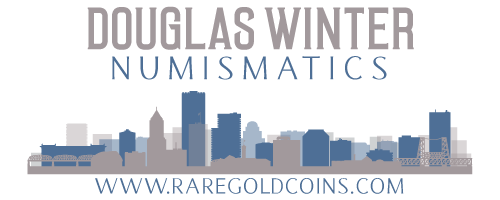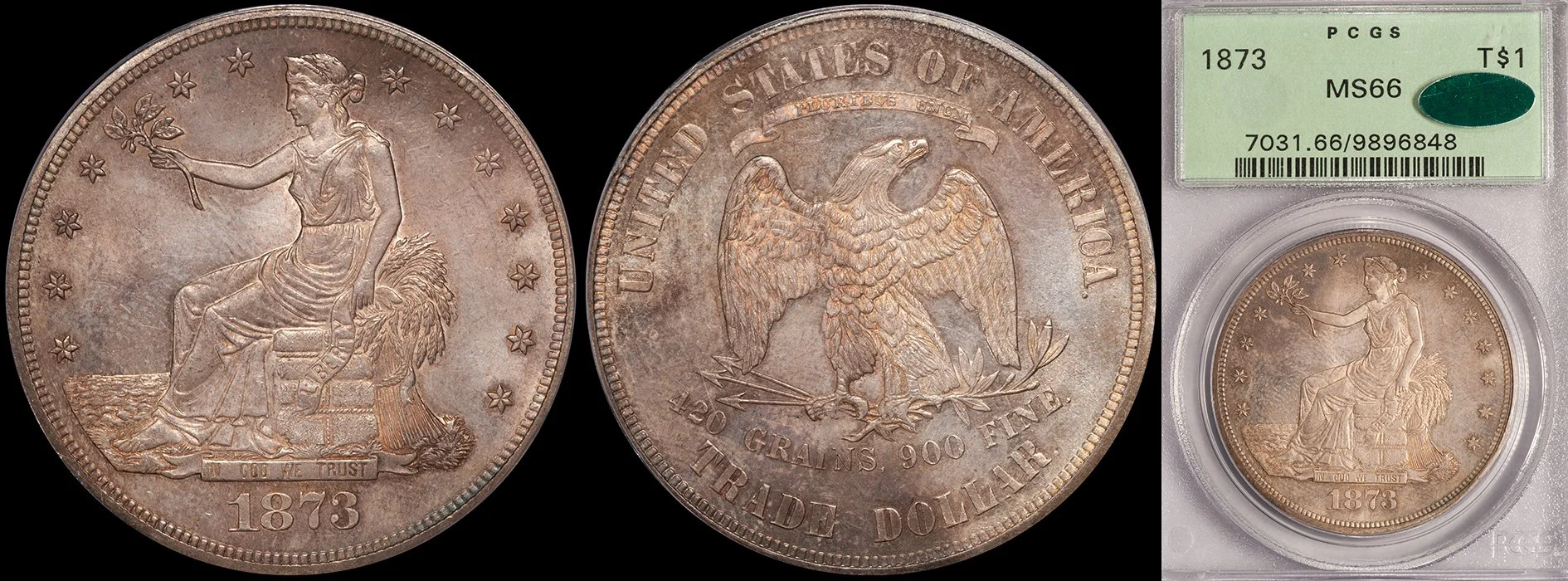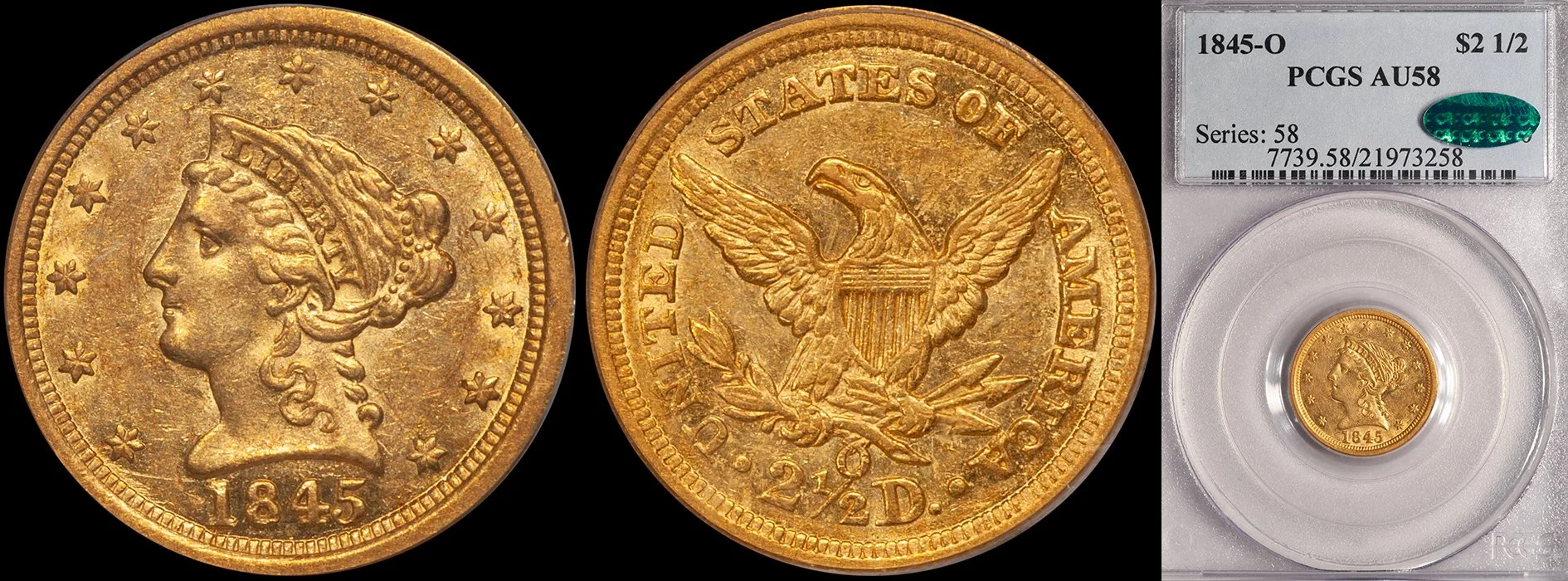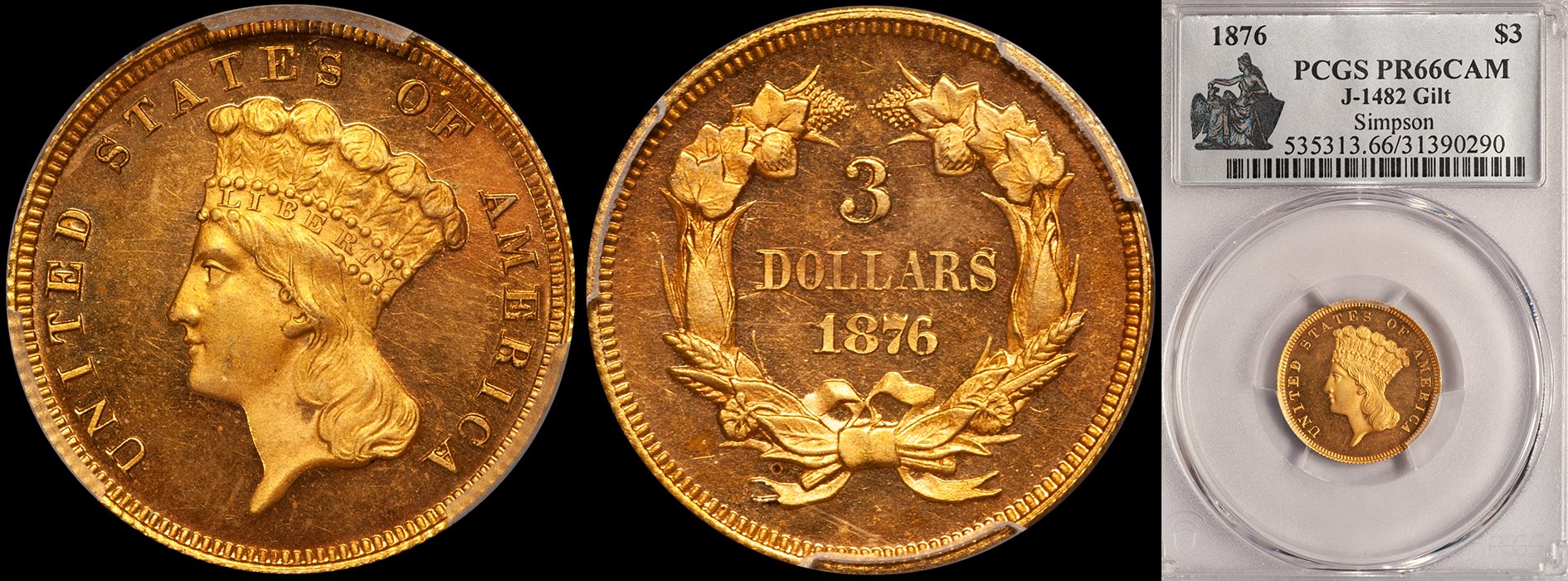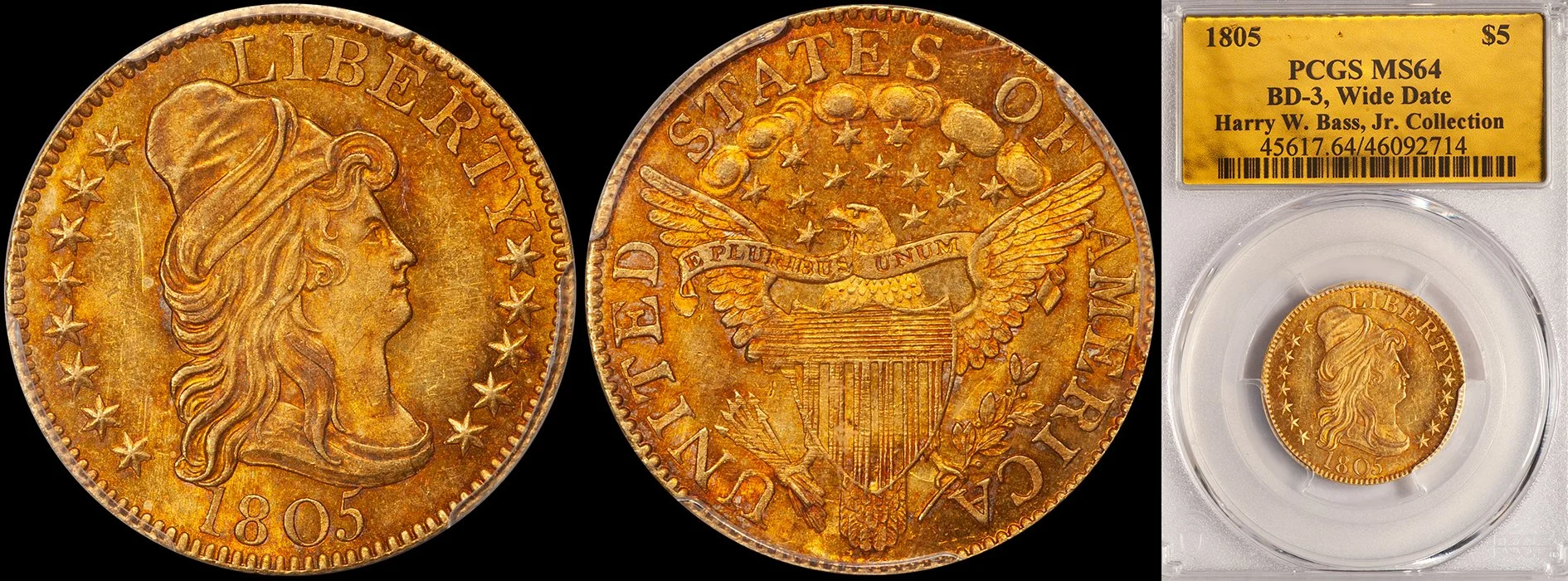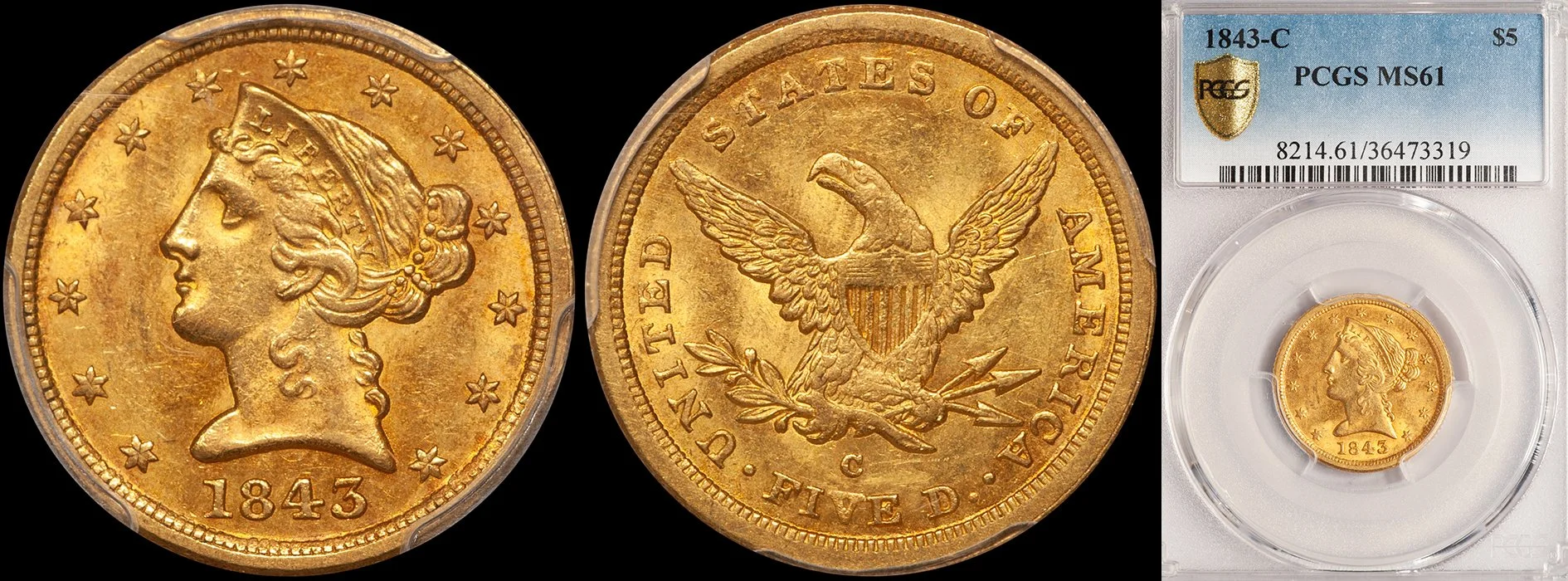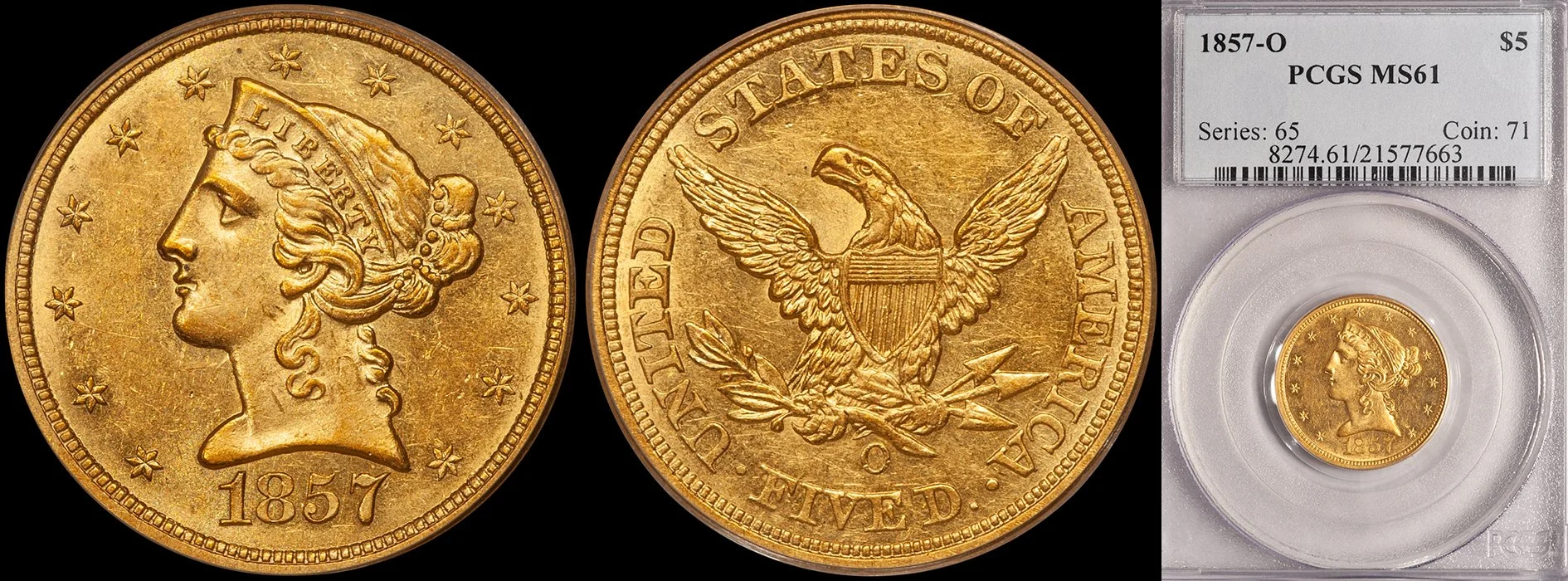Should You Buy Very Rare Coins in Low(er) Grades?
/As recently as a few years ago, if you asked me "should I buy very rare United States gold coins in low(er) grades" I would have resoundingly answered "no!" But, as with so many things in life, perspectives change and my answer to this question has as well.
A piece of advice I had often given new collectors is that you shouldn't buy gold coins that grade lower than EF40. That is still a cut-off grade for me and, for many issues, I still recommend sticking with EF and finer coins. But I now will sometimes buy certain very rare issues in grades as low as Good to Very Good. What exactly made me change my mind?
I came to a conclusion a few years ago that just because someone doesn't have a $5,000 or $10,000 per coin budget doesn't mean that they don't appreciate truly rare coins. Nor should they be shut out from the potential of buying a few coins, now and then, that can be genuinely tagged as "rare" or even "very rare." I'm a coin snob who is trying to become more inclusive, I guess...
A few coins that I recently sold on my website raregoldcoins.com illustrate this belief. In the past two months, I handled a pair of 1870-CC half eagles, graded Good 6; one encapsulated by PCGS and the other by NGC. These were coins that I probably wouldn't have bought a few years ago but the New Doug Winter bought them and was pleasantly surprised at how quickly they sold; not to mention how much attention they generated.
Here's my way of thinking about a coin like an 1870-CC half eagle in very low grades. This is an issue with strong Multiple Levels of Demand. It is rare in all grades, it is the rarest half eagle from this mint, it is a first year of issue and it is the only quasi-affordable gold coin dated 1870-CC. In other words, it is a coin that's "got it all." But it is very expensive in EF and AU grades and not every collector who is sophisticated enough to want one can plunk down the $25,000-50,000+ it takes to buy a nice one.
So what's wrong with a well-worn but very problem-free example of this date in a Good 6 holder? Actually nothing; a fact that was lost on me until recently.
When you think about it, a Good 6 1870-CC half eagle is a pretty darn cool coin; certainly one of those "if it could only talk imagine the stories it could tell" kind of coins and probably more so, in some ways, than the same date in EF45 or AU50.
By the same token, I don't automatically think every CC half eagle from the early 1870's in lower grades is a cool coin. In fact, the chances are good that if I were offered a decent quality 1872-CC half eagle in Good or Very Good I would pass. Why? It is clearly a rare coin but it doesn't have nearly the cool factor that the 1870-CC not does it have the strong multiple level of demand. My grade cut-off for the 1872-CC half eagle is more like EF40.
What are some of the parameters that I would employ when choosing to purchase a very rare coin in low(er) grades?
First, just as with a very rare coin in higher grades, I would avoid any piece which has been harshly cleaned or which has poor eye appeal. A coin in Good 6 doesn't necessarily have to be CAC-quality but make sure it has reasonably good overall eye appeal.
Second, I would look for coins which are not only very rare but whose high price point in higher grades eliminates a large pool of potential buyers. As an example, I recently sold a VG8 example of the very rare 1865-S/186 Inverted Date eagle. Not only was it a decent looking coin, it was priced at less than $3,000 which is tons cheaper than the next semi-available grade point (VF/EF) for this issue. From an economic standpoint, this coin made a lot of sense to me.
Third, I wouldn't go overboard with buying very low grade gold coins. In other words, you don't want a collection which features nothing but coins like 1870-CC half eagles in Good 6. A few coins like this are cool pieces to sprinkle in your set. A lot of coins like this are, well, a collection of very low grade coins...
Fourth and final, my sudden admiration for lower grade coins is, as I've tried to make clear, highly selective. Remember: 1870-CC half eagle in Good 6, si.... 1872-CC half eagle in Very Good 8, non.....
For more information on how to put together a great collection of United States gold coins, with or without very rare coins in low(er) grades, please feel free to contact me by email at dwn@ont.com.
